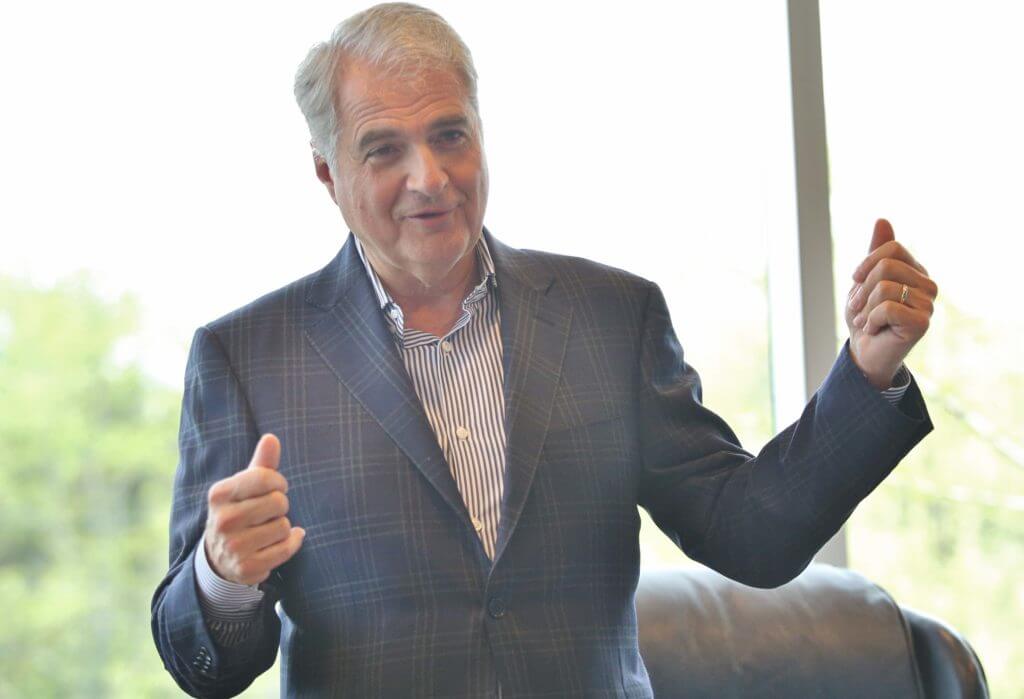Accounting for Growth: Louis Grassi Talks Ins and Outs of Financial Advising Business
Louis Grassi is the managing partner of Grassi Advisors and Accountants, a firm with nearly 500 employees and seven U.S. offices in New York, New Jersey, Massachusetts, and Florida, and one in Italy. We talked with him about accounting, taxes, technology and the New York/Florida nexus.
What things are some companies or individuals overlooking in terms of taxes? A lot of people have overlooked a lot of opportunities like R and D credits and employee retention credits. So many things were overlooked. People are at social events, golf clubs. Someone says, “Did you get this?” They say, “No, I didn’t.” We get a phone call and we assist someone that we didn’t have a working relationship with. It’s a high percentage of income where existing clients tell people, “My accountants did this for me. Did yours do that for you?”
What other things are people missing? A lot of tax credits, depreciation rules and maximizing depreciation, cost segregation studies when people buy new buildings. There are so many things people are overlooking. It’s more than that. When people put facilities into service, we help with that. I was in our Florida office and now I’m heading back to New York. I had lunch with one client and their friend. They were buying real estate. There were tax savings. I got a new client over lunch.
What can clients do to make tax filings more efficient on their end? We’re trying to get as much information as we can get earlier. It’s like cramming for a test. Everyone says, “I have to file my taxes in two weeks. Maybe it’s time to send my information.” We’re proactive. It’s not a two-hour process.
Does information still come in at the last minute? Brokerage houses typically send out three or four iterations of the same 1099 [IRS income form that reports payments not made by an employer]. We’re still getting corrected information at the last minute. You can’t charge extra for it, but additional time goes into it. Once you redo a return to put something else in, you have to review everything.
Do accountants relax at all after April 15? A little bit. A lot of people are put on extension, because there’s missing information. We finalize a lot of corporate returns. Then we get in some outside K-1s [IRS tax returns that report shares of partnership income]. The staff remain busy throughout the year. Sept. 15 is the next big deadline, when corporate tax returns are due. The key is to be consistent, so when Sept. 15 comes around it’s a nonevent.
How important is technology? I would never think the day would come that I have 25 information technology (IT) support staff and nine data scientists on staff writing new programs so we can be up to date on technology and incorporate efficiencies in our practice. There are ways of making every process we do more efficient, more effective within the organization, allowing people not to do a lot of the mundane tasks that they generally do at entry levels. They’re educated, bright people. I’m trying to take mundane tasks away from them so they can think and act like a professional from day one.
What kind of advising do you do in addition to taxes? Best practices in companies. Making sure our clients are as efficient as possible. We have different practice groups, industry groups that have their own consulting teams. It helps them be more efficient in factories, distribution centers. We help them become more efficient in their internal accounting, making sure their IT is working properly. We don’t really sell product. We want to sit on the same side of the table as our client.
How do you operate as a regional firm? We share all information. It’s not like if you get someone in Boston, you get a different answer than if you work with someone in the Long Island office. We work through a team approach firmwide. We have regular meetings where our people talk to one another about tax ideas. There’s constant communication. We do virtual lunch-and-learns. Everyone in every office tunes into it.
How do you find and attract new hires? We try to build a strong bench, so we hire about 35 recent graduates each year. If we see a group of people we really like, we’ll overhire at that level. As a growing firm, we’re always looking for experienced hires. We’ve been fortunate in attracting a lot of talent. We have offices in other places, including Florida. Some people wanted to migrate out. We kept those people on, just in a different state.
Are you finding that more New Yorkers are getting homes in Florida, not simply retiring there? I was at a function last night in Palm Beach, Florida. I can tell you I spoke to a lot of people in the room. All of them were in their 40s and 50s. They made Florida their home. They work for the same company remotely. They’re loving life in sunshine 12 months a year.
Do you want to open any additional offices? We’re looking to fill in the East Coast and then we’ll probably go to the Midwest. We’re looking at a few places, in Maryland, North and South Carolina, as far south as Louisiana.
Would you grow by merging or opening? We’ve done a combination of both. We merged in some quality firms. It has to be a cultural fit. The only thing you never sacrifice in life is your culture. It has to be someone who’s ingrained in high-level client service and high-level technical skills.
Related Story: Thompson Economic Development Services Expands Opportunity on Long Island































